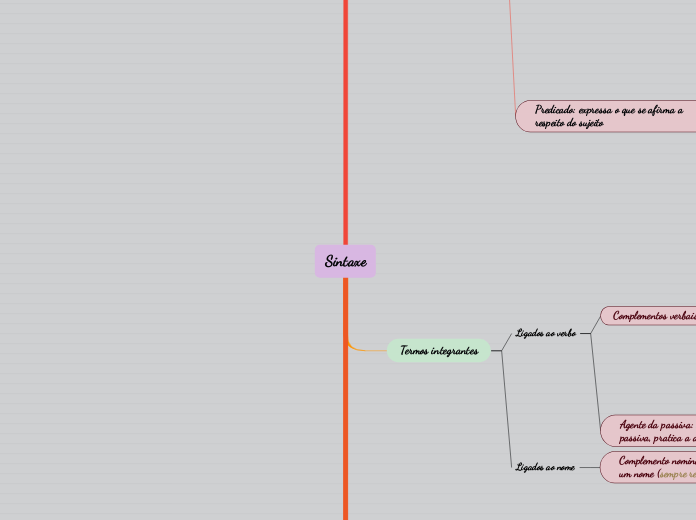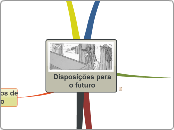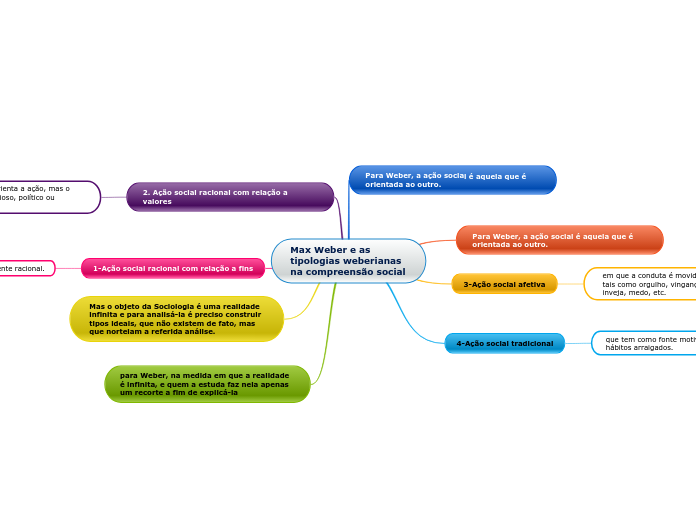Sintaxe
To name your story, you have to think about the overall message and what you want your audience to understand from the story. Also, make it relevant and easy to remember.
Termo independente da oração
The ending of a story is essential. We all know that if the ending is weak, what happened before loses its importance. So make it unpredictable, but fair. A resolved ending answers all the questions and ties up any loose threads from the plot.
Vocativo
This is the moment when the main character surpasses the last obstacle and finally faces their greatest challenge.
The climax usually follows one of these patterns:
- realization
- resolution
- choice
Type in your answer.
Ei, você, pare com isso (pronome pessoal reto).
Minhas queridas amigas, venham me visitar.
Lucas, venha aqui. (substantivo)
Termos acessórios
The middle of the story is where you add layers of complications that will lead to the end. Reveal more about the character's journey. Did their personality go through changes? How did they overcome the challenges? And as you build up the story’s central conflict, make it more personal to that character. Also, from the middle act, you have to lead into the final act.
Adjunto adverbial: termo com valor de advérbio, que acompanha o verbo, o adjetivo ou outro advérbio, acrescentando-lhe alguma circunstâncias.
There wouldn't be any tension and excitement in your story if there weren't any obstacles in your character's way.
Classifica-se de acordo com a circunstância que acrescenta ao termo modificado (tempo, lugar, maio, causa, finalidade, etc)
A story is nothing more than a character overcoming a series of difficulties to reach the desired goal. Obstacles usually create suspense and conflict. In overcoming obstacles, there is growth: weak becomes strong; hatred turns into love; sadness into happiness; wrong into right; lies into truth; or evil becomes good.
See a few examples below:
- stopping a meteor
- finding a killer
- finding love
"Eu a amo ardentemente".(adj.adv.de intensidade)
Plantei uma rosa no jardim (adj.adv.de lugar)
Ele chegou de trem. (adj.adv. de modo)
Aposto: termo de valor substantivo que segue um outro substantivo a fim de explicá-lo, especificá-lo, resumi-lo ou enumera-lo
Your character(s) need(s) motivation in order to solve the challenge(s).
Enumerativo
Já sei o que levar na viagem: roupas, calçados e maquiagem.
Resumidor
Secondary characters also might have motivs beacuse of which they may cross path with main character or which might trigger them to help the main character.
Saúde, lazer e educação são todos direitos da criança e do adolescente.
Especificador
Secondary characters might also have motives that lead them to cross paths with the main character or which might trigger them to help the main character.
A cidade de Londres é belíssima.
Explicativo
Why does your character need to confront this challenge? What does he/she expect to accomplish by solving it?
See a few examples:
- will marry in 3 days
- can fix the mistakes of the past
Encontrei Daniel, um rapaz muito educado.
Adjunto adnominal: palavra que acompanha o substantivo (nome)
Each story has a main character and that character usually needs to solve a problem or challenge. The character's challenge is the one that creates tension throughout the story.
O amor que sinto é imenso.
Li o livro de bolso.
Type in any other challenges which other characters in the story need to face.
Dei informações erradas
In most stories, there are 3 challenges. The number 3 is a mystical number symbolizing completeness. Try to come up with interesting challenges with which your character needs to struggle.
See a few examples below:
- turns into a werewolf at night
- is sent back in time
Termos integrantes
Ligados ao nome
Complemento nominal: completa o sentido de um nome (sempre regido de preposição)
Eadlyn tinha a certeza (nome) disso (de+isso=complemento nominal).
Ligados ao verbo
Agente da passiva: termo que, na voz passiva, pratica a ação verbal.
A casa (suj.paciente) está cercada de poeira (agente da passiva). --> Voz passiva
A poeira (suj.agente) cercou a casa (OD). -->Voz ativa
Complementos verbais:
Objeto indireto: precisa de preposição para completar o sentido do verbo
A mim (OI), nada me (O.I.pleonástico) interessa
Gosto muito de Sherlock Holmes
Quero esquecer-me disso (de+isso)
Pediram-me ajuda
Objeto direto: não precisa de preposição para completar o sentido do verbo.
O rapaz a quem presentearam era meu amigo. (objeto direto preposicionado)
Comprei o livro Emma de Jane Austen
Eu acho que todos somos bons alunos (oração c/ valor de objeto direto)
Era triste vê-la doente
Termos essenciais
In the beginning of the story (or the exposition), you will need to introduce the setting and characters. You might also want to introduce the main conflict. This part of the story is important because it gives the reader necessary background information and maybe even a first insight into a character’s personality.
Predicado: expressa o que se afirma a respeito do sujeito
The setting (time & place) of a story can change throughout the plot.
Verbo-nominal: dois núcleos -verbo e nome
The weather is an important element in your story because it can highly influence the ambiance and the mood of the characters.
Marlee assistiu (VTI) ao filme alegre (PS)
O professor nomeou(VTD) Priscylia protagonista (PO)
Decide if you want to include an element of nature in your story. For example, a rainbow can be a very nice choice for a happy ending. The mist in a story can represent mystery and secrets. A thunder can appear in the background at the moment when the 'bad guy' of the story makes its appearance, etc.
Maxon chegou (VI) cansado (PS)
Does your story include catastrophic weather? See a few suggestions below or add your own:
- hurricane, earthquake, storm, etc
Nominal: tem um nome como núcleo
The time of the story can also change. It can describe the event of a single day or can include an entire year's plot. Anyway, don't forget to mention it.
Ana é uma boa médica
Verbal: tem um verbo como núcleo
Your story can take place wherever your imagination will take you to.
For example: in an elevator, in an enchanted forest, etc. Don't forget to give details of the environment each time the setting changes, otherwise, the story can be confusing. Also, mention the seasons as each of them has unique weather and events.
Verbo transitivo
Direto e indireto
Maria entregou a encomenda ao professor
Indireto
Alice gosta de livros de época
Direto
Escolha (você) um vestido
Verbo intransitivo:
Um bebê caiu do carrinho
Sujeito: indica o termo que indica o ser a respeito de quem se diz alguma coisa
Characters are essential to a good story. Usually, the protagonist(s) is/are the most affected by the plot. Introduce a character by focusing on their actions, interests, and occupation, as the physical appearance doesn't make a difference in most cases.
Oração sem sujeito
Verbos denotando fenômenos da natureza
Neva em Paris.
Já é manhã em Seoul.
Verbos usados para referir-se ao tempo
Já passa das duas horas.
Era domingo de manhã.
Verbos haver, fazer e ir no sentido de existir
Faz um ano que ela partiu.
Há anos não o vejo.
Verbo haver no sentido de existir
Havia muitas pessoas naquele local.
Indeterminado: quando não se pode ou não se quer identificar o autor da ação (sujeito)
Verbo na 3ª pessoa do singular, acompanhados da partícula se
Necessita-se de ajuda. --> (IIS)
Discutiu-se sobre o assunto em sala. --> índice de indeterminação do sujeito(IIS)
Verbos na 3ª pessoa do plural, sem referência anterior .
Choose the type of your chacter:
Protagonist (main character)Antagonist (main character's opponent)Flat (stereotypical character)Round (his/ her personality develops throughout the story)Static (doesn't evolve as a person throughout the story)Dynamic (dramatical change in personality)Confidant (the main character trusts him/ her)Foil (contrasting character who enhances the personality of another character)Other
Salvem as baleias.
Roubaram minha bolsa.
Determinados
Type in the name of your character.
Oculto: identificado pela desinência verbal
Vou (eu) ajudá-la
Composto: dois ou mais núcleo
What is your character's main goal?
fight Evilfind lovedefeat his/her enemyrule the worldmake friendstime travelmake an awesome discoveryOther
Os sem-tempo e os sem-secretária abriram uma conta
Os meninos, as meninas e seus pais liam
Simples: há apenas um núcleo
Which traits best describe the character's personality? Choose more if necessary:
introvertedloyalkindindependentquick-thinkingadventuresomeidealisticsweet-naturedcalmrisk-takercreativewittystrictfussyweirdclumsyharshaggressivecarelessclingingcowardlycrueldeceitfulimpulsiveOther
As meninas brincam no parque
substantivo
Eu sou o pássaro da felicidade
pronome










